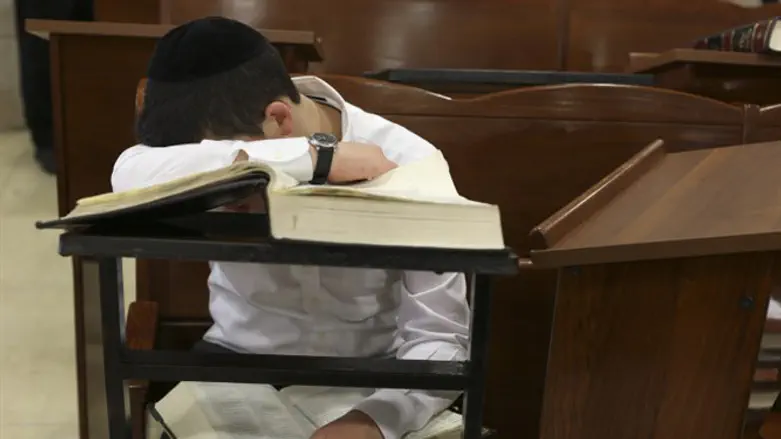
The issue of the Liba core curriculum requirement for haredi schools returned to the public agenda recently, with the repeal of the Core Curriculum law currently under way.
Under the previous government, legislation requiring schools within the haredi educational system to teach the core curriculum was passed. Yair Lapid, who initiated the law, claimed, and continues to claim that its purpose was to give haredi children basic secular knowledge which will enable them to pursue respectable careers later in life.
Opponents of the law, including the haredi MKs, have vilified it on various grounds, democratic and technical, but one of the most persistent claims against the law in haredi circles is that secular studies in elementary school are unnecessary for haredim, as their Torah studies develop their minds in such a way as to make catching up later in life easy for them. To back this up they cite the apparent success of "Mechina", pre-academic programs, where haredim go to catch up on basic secular knowledge for a year or so before applying to University. Haredi MKs point to the many success stories emerging from these programs. But is that the whole story?
New data released by the Central Bureau of Statistics divide haredim and the general population into four groups based on aptitude in math and reading, from lowest aptitude to highest. The data show that while there is virtually no difference between haredim and the general population in the lowest group, meaning that among those with low aptitude, haredim are not worse-off than the general population, when taking the highest aptitude group there is a significant difference.
In math, the percentage of haredim scoring in the top aptitude group is 9.7%, versus 17.5% in the general population. With regards to reading, the situation is worse, with the percentage of haredim in the top division within the margin of error in relation to zero, versus 12% in the general population.
50% dropout rate
More worrying for haredim however, are the statistics coming out of the academic institutions and the pre-academic "Mechinot".
A study published by the Taub institute found that 50% of haredi men who enroll in academic institutions seeking a bachelor's degree drop out, and this is among those who have made it into Universities and Colleges. Among haredi women, who do study secular subject in high-school, the situation is better, with a 30% dropout rate.
According to a report in The Marker, the dropout rate in the Mechinot is most likely worse. Professor Danny Zilberstein, who runs all pre-academic programs in the Technion-Israel Institute of Technology, only 35% of haredim who enroll in their Mechina program make it through, and this even though the Technion has standards of admission to the program, turning away some who are less qualified.
All this seems to mean that the 50% rate is in fact much higher than the real success rate of haredim looking to get a higher education, taken as a whole, because it is only 50% of those successful enough to make it through the previous hurdles who graduate with a degree, not 50% of all haredim trying to obtain academic qualifications. The data also indicates that while there is an intellectual elite in haredi society whose Torah education prepares them for catching up on secular knowledge, there is no such mechanism among the masses.